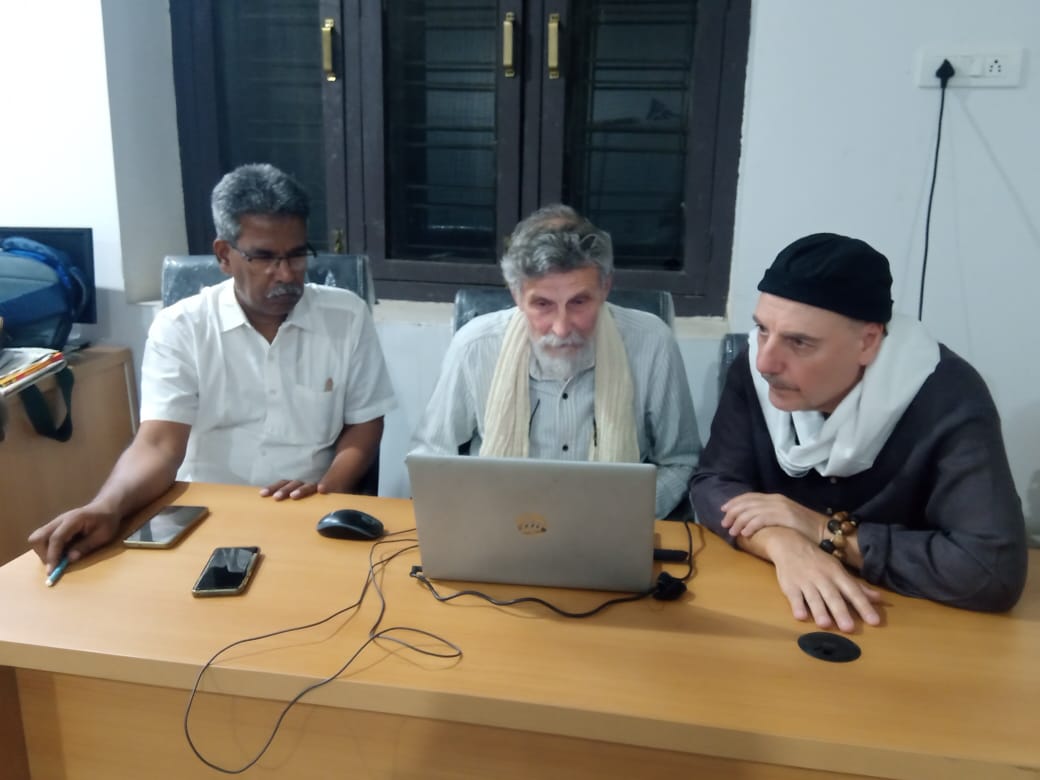Alternative Models of Development
Siby K. Joseph
Part -2
While discussing the alternative models of development we
have analysed alternative models and concepts of development that has been
developed within the basic framework of mainstream economics like the concept
of Doughnut Economics was developed by British Economist Kate Raworth, Gross
National Happiness Index of Bhutan, The Human Development Index developed by
Mahbub ul Haq There are a number of concepts and models in this direction. But
we will limit ourselves to the examination of couple of them like Inclusive
Development Index, Institutional Economics, Specific Diseconomy, Post
development Theory and the earth centric approach to development
In the context of growing disparity and division between the countries of North and South, the idea of inclusive growth became a popular concept in the discourse of development. The Inclusive Development Index is an economic index introduced by the World Economic Forum. This index has been developed as an alternative to GDP to measure a country's economic growth and development. Through this index countries’ economic performance is measured on the basis of eleven factors of economic progress in addition to GDP. It has three pillars: “growth and development; inclusion and intergenerational equity and sustainable stewardship of natural and financial resources.” It aims to inform and enable sustained and inclusive economic progress through deepened public-private cooperation through thought leadership and analysis, strategic dialogue and concrete cooperation, including by accelerating social impact through corporate action.
The role of the state is an important determinant of the
whole process of development. During the Thatcherite era, the role of the state
in development was downgraded and side lined. Later, agencies like the World
Bank, have given adequate recognition of the role of the state and its
institutions. This has been partly due to the rise of the idea of institutional
economics. It was pioneered and propounded by Douglass North. He has skillfully
summarised in his essay, “ The New Institutional Economics and Development”, the
essential characteristics of the new institutional economics and how it differs
from neo-classical theory, and applies it to the problems of development. He
wrote “It is polities that shape economic performance because they define and
enforce the economic rules of the game. Therefore, the heart of development
policy must be the creation of polities that will create and enforce efficient
property rights.”
There is also a stream of scholars who look upon a form of
development that relies neither on the government nor on the market. According
to them it should be centered on the people and their wisdom. It was Ivan
Illich,a Croatian – Austrian philosopher, who severely criticized the
institutions of contemporary Western civilization and the contemporary
policies and practices in the field of education, health,
approach to work and the very idea of economic development. He used terms
like “specific diseconomy” to measure the degree of institutional counter
productivity and inefficiency in various fields. He cites examples of
the medical industry which induces illness, educational
institutions contribute to ignorance of pupils , the judicial
system perpetuates injustice and so on. When specific diseconomy is on
the increase, it means that an institution or industry is increasingly
becoming counterproductive or inefficient, defeating its very goals
for which it was established. His analysis became a guiding light for the later
critics of colonialism and post colonialism and a number of post - development
theorists like Arturo Escobar and Gustavo Esteva.
Post development theory is nothing but an anti development
theory based on the premise that the whole concept and practice of so-called
development is nothing but a reflection of Western-Northern hegemony over the
rest of the world. The post development theorists like Escobar and Esteva have
challenged the very goal and purpose of development. Their main argument is
that development was always unjust, it never worked, and was an utter failure.
Wolfgang Sachs, a leading member of the post-development school, in his
introduction to the book The Development Dictionary: A Guide to
Knowledge as Power, wrote “the idea of development stands
like a ruin in the intellectual landscape. Delusion and disappointment,
failures and crimes, have been the steady companions of development and they
tell a common story; it did not work” Further he stated “it is time to
dismantle this mental structure.”
The earth centric approach to
development
The earth centric approach to
development was the result of environmental damages created by
industrial development. It led to the use of a number of new terminologies in
the discourse of development. It led to the use of the Gaia concept of
development which keeps mother earth and its sustainability as
one of key concerns of development. Etymologically the word Gaia is
derived from Greek Gaîa, a primordial earth goddess in Greek myth,
literally, means "earth". It is based on the hypothesis that
the biota and non-biota components of earth function as a single system or
organism in such a way that the living component regulates and maintains
conditions conducive for life. The concept of deep ecology, eco-
feminism and similar other concepts are now popular in the
discourse on development. Many of these new concepts have a deep imprint of
Gandhian ideas and ideals.











No comments:
Post a Comment